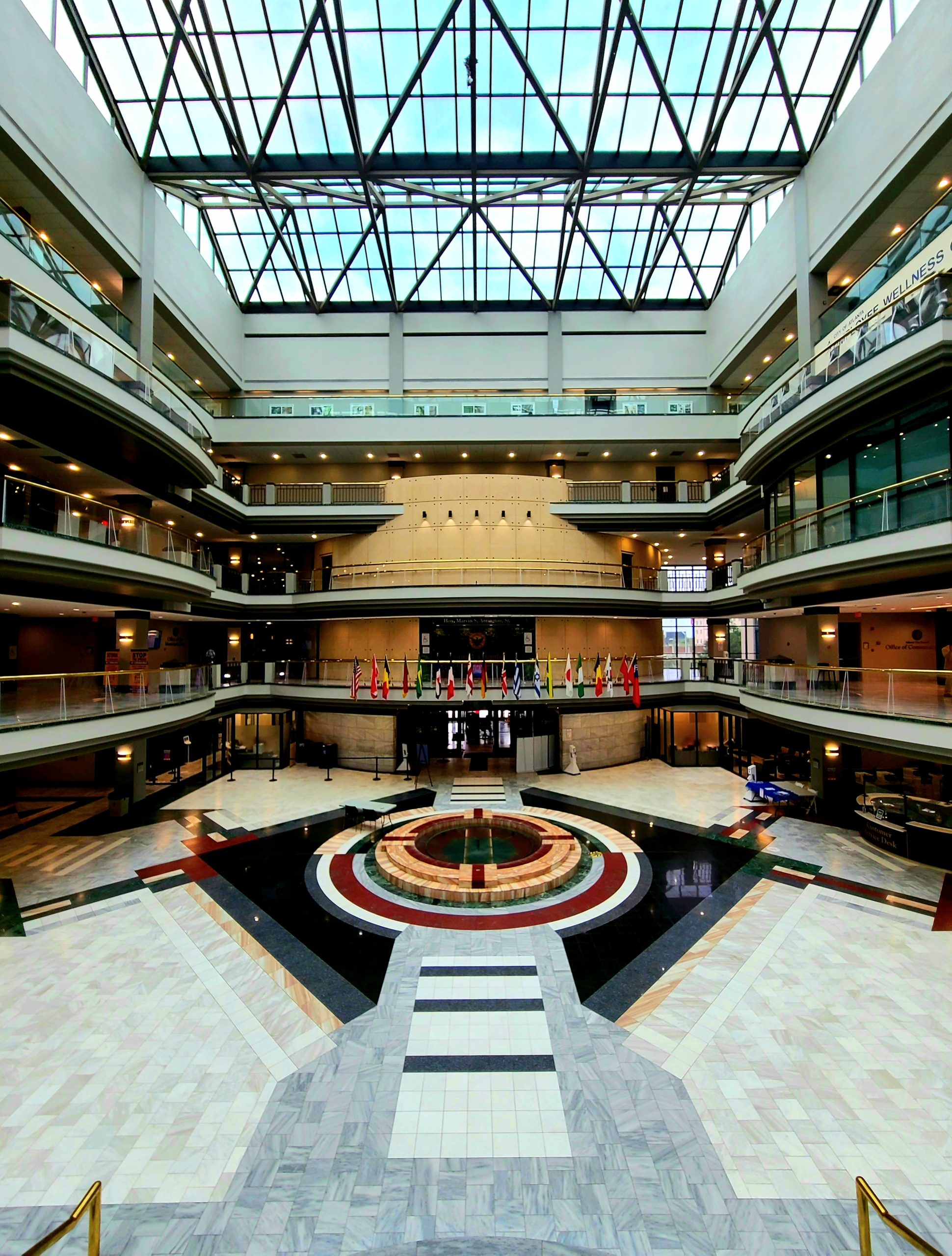The city of Atlanta is embarking upon perhaps its most aggressive crackdown on predatory and negligent landlords to date, as it steps up oversight and enforcement against those providing substandard living conditions to low-income renters to bring them up to compliance with the city’s housing code.
Mayor Andre Dickens’ top housing advisor, Joshua Humphries, shared some details of the city’s new Safe and Secure Housing initiative exclusively with Atlanta Civic Circle. It specifically targets 57 “high-priority” properties with a “high number of code violations and/or violent crime,” he said in a statement, and 16 apartment complexes are already in “some stage of the enforcement process.”
To have the manpower to do this, the city is increasing funding to its code enforcement team and law department, and hiring new staff for the solicitor’s office “to initiate litigation on each and every property that merits legal action,” Humphries said. He did not say how much additional staff would be hired. The city is also hiring outside law firms to file and litigate cases.
By mid-2022, the city had initiated enforcement actions against five of the 16 properties: Trestletree Village in Ormewood Park, Forest Cove in Thomasville Heights, Daron Village on the Westside, Pavilion Place on the southside, and the Fairburn Gordon Apartments in Adamsville.
Since then, the city has launched enforcement actions on 11 more properties, with plans to expand the program this summer, Humphries said. That includes dispatching multi-agency inspection teams to log violations, criminal citations against non-corporate ownership, and civil litigation against corporate owners. In some cases, property owners could voluntarily enter into settlement agreements with the city to resolve the violations or security issues.
The city is taking a more comprehensive, data-driven approach to spotting problems at multifamily properties citywide, by tracking crime incidents and calls for service, code complaints, and water bill amounts.
But “there are limitations to the city’s authority and ability to act,” Humphries acknowledged in the statement. State law prohibits establishing rental registries, which track monthly rent charged, tenants’ treatment, and other data for multifamily properties, and city inspectors cannot enter properties to assess them without due cause.
The city is also monitoring whether the properties receive public subsidies. The aim is to “identify properties that are already problems, as well as proactively detect issues as they arise,” Humphries said, so the city can engage tax and rent subsidy providers such as the state Department of Community Affairs, the U.S. Department of Housing and Urban Development, Invest Atlanta, Atlanta Housing, and the Atlanta District Attorney’s Office to coordinate enforcement and remediation.
The city also wants to work with “cooperative, responsible owners,” Humphries said, with few code violations but serious crime problems, by providing rehabilitation funding. The Dickens administration will work with public, private, and philanthropic groups to identify funding.
Rehabilitating neglected properties could “unlock tens of thousands of units of affordable housing across the city,” Humphries said.
Housing advocates approve,
“This is the best plan and attention [paid] to this issue that I have seen in Atlanta in my career,” Atlanta Volunteer Lawyers Foundation (AVLF) head Michael Lucas told Atlanta Civic Circle in an email.
“For decades, AVLF has focused on litigating against landlords like these because, too often, they were not being held accountable—and Atlantans were suffering as a result,” Lucas said. “Obviously, the proof will be in the results.”
The plan “looks really good to me,” said Foluke Nunn, a community organizer with the American Friends Service Committee, which has served as a watchdog during the city-led relocation of tenants from Forest Cove, after the city condemned the property in December, 2021.
“I think it’s always hard to say how these things are going to work in practice,” she said in an interview. “My hope is that, as it’s implemented, it’s a plan that has teeth to it and puts bad property owners on notice.”
Humphries encouraged city residents living in substandard conditions to call 311 and file a code complaint so the city can investigate.



I live in a property just recently rented through the HUD voucher program. The house passed inspection with deplorable conditions and the smell from under the house is horrific. The landlord said he would fix everything that needed to be fixed but when Hus approved the contract he said my cats had to leave after he before stated they could stay then said he wasn’t fixing nothing. They passed inspection and that’s it. According to the housing landlord inspections checklist, the house should have never passed inspection. It had a decon out visible for the inspector. Sink leaking. Wall peeling and the house is 69 yrs old. Window ceilings has chopped paint, fence down, mold on bathroom tiles, floors covered with paint dust. Sink dirty, stove, and fridge rubber had mold spots, fridge ice maker rusted. I mean I can keep going. That smell from the crawl space of old rat piss is terrible and a health hazard. It’s deadly at this point. I can barely breath some days. I had to mop the floors wet about 3-4 tim s before I dry mopped them. I even offered to paint and he said he would bring it, that never happened. He passed inspection because he knew the inspector. He called his name out and told me that’s how I know and guess wat, he did. This goes on often with ethics and conduct concerning ppl and how they view us on the receiving end. I suppose to be getting a special inspection which has been almost 2 weeks now. This smell wearing me out. I’ve paid 2 storage bills since being ng here..This is sad and should not be accepted.